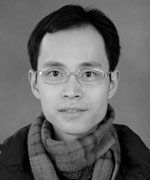
Joseph Brodsky
约瑟夫-布罗茨基
  Joseph Brodsky (1940-96) was born in Leningrad and emigrated to the United States in 1972 as an involuntary exile from the Soviet Union. His main collections of poetry include A Part of Speech (1977), To Urania (1988), and So Forth (1996); books of prose: Less Than One (1986), Watermark (1992), On Grief and Reason (1996).He was awarded the Nobel Prize in Literature in 1987 and served as Poet Laureate of the United States from 1991 to 1992. Joseph Brodsky (1940-96) was born in Leningrad and emigrated to the United States in 1972 as an involuntary exile from the Soviet Union. His main collections of poetry include A Part of Speech (1977), To Urania (1988), and So Forth (1996); books of prose: Less Than One (1986), Watermark (1992), On Grief and Reason (1996).He was awarded the Nobel Prize in Literature in 1987 and served as Poet Laureate of the United States from 1991 to 1992.
约瑟夫-布罗茨基(1940-96)出生于列宁格勒,1972年被苏联当局驱逐出境,移居美国。他的诗集主要有:《部分言辞》(1977),《致乌拉尼亚》(1988),《如此等等》(1996);散文集:《小于一》(1986),《水印》(1992),《悲痛与理智》(1996)。布罗茨基于1987年获诺贝尔文学奖,1991-92年间任美国桂冠诗人。
|

|

译者
Translator
冯冬
Peter Feng
 
冯冬,1979年生于重庆,当过大学英文教师,南京大学英文博士班学生,曾译过游记《中华帝国纪行》、《亲密接触中国》、小说《蛛网与磐石》、诗歌《西米克的诗》等,在《新大陆》等诗刊上发表过作品,主要研究诗歌、精神分析和当代哲学。
Peter Feng was born in Chongqing, China, in 1979. He taught English at a Chinese college for two years. He is currently a PhD student at Nanjing University. He has co-translated a travelogue A Journey through the Chinese Empire, Intimate China, a novel The Web and the Rock and a book of translation Poems of Charles Simic. His poems appeared in Chinese poetry journal New World Poetry Bimonthly and others. His study includes poetry, psychoanalysis, and contemporary philosophy.
|
I said fate plays a game without a score,
and who needs fish if you’ve got caviar?
The triumph of the Gothic style would come to pass
and turn you on—no need for coke, or grass.
I sit by the window. Outside, an aspen.
When I loved, I loved deeply. It wasn’t often.
I said the forest’s only part of a tree.
Who needs the whole girl if you’ve got her knee?
Sick of the dust raised by the modern era,
the Russian eye would rest on an Estonian spire.
I sit by the window. The dishes are done.
I was happy here. But I won’t be again.
I wrote: The bulb looks at the floor in fear,
and love, as an act, lacks a verb; the zer-
o Euclid thought the vanishing point became
wasn’t math—it was the nothingness of Time.
I sit by the window. And while I sit
my youth comes back. Sometimes I’d smile. Or spit.
I said that the leaf may destroy the bud;
what’s fertile falls in fallow soil—a dud;
that on the flat field, the unshadowed plain
nature spills the seeds of trees in vain.
I sit by the window. Hands lock my knees.
My heavy shadow’s my squat company.
My song was out of tune, my voice was cracked,
but at least no chorus can ever sing it back.
That talk like this reaps no reward bewilders
no one—no one’s legs rest on my shoulders.
I sit by the window in the dark. Like an express,
the waves behind the wavelike curtain crash.
A loyal subject of these second-rate years,
I proudly admit that my finest ideas
are second-rate, and may the future take them
as trophies of my struggle against suffocation.
I sit in the dark. And it would be hard to figure out
which is worse; the dark inside, or the darkness out.
|
|
我说命运玩着不计分的游戏,
有了鱼子酱,谁还要鱼?
歌特式风格再度胜利,
让你兴奋——无需可卡因,或大麻。
我坐在窗前。窗外,一颗白杨。
我如果爱,爱得很深。这不常发生。
我说森林只是树的一部分。
得到女孩的膝,谁还要她整个人?
现代纪元掀起的灰尘令人恶心,
俄国人的目光落上爱沙尼亚的尖顶。
我坐在窗前。饭已吃完。
我在这儿曾快乐过。但我已不再快乐。
我曾写下:灯泡恐惧地注视地板,
爱,虽是行动,却少了动词;
欧几里德认为消失的一点化作了零,
这不是数学——这是时间的虚无。
我坐在窗前。坐着坐着
想起我的青春。有时我笑一笑。有时啐一口。
我说树叶可能毁灭幼芽,
养料掉进休耕地——哑弹;
平坦的原野上没有阴影,大自然
徒劳地播撒树的种子。
我坐在窗前。双手锁膝。
沉重的影子与蜷缩的我相伴。
我的歌走了调,我的嗓音沙哑,
但至少没有和声能将它伴唱。
人们深知,这种谈话没有价值,
——没人站在我的肩膀上。
我坐在窗前的黑暗里。如一列快车,
层层波浪在舞动的窗帘外撞击。
我忠诚于这二流的年代,
并骄傲地承认,我最好的想法
也属二流,但愿未来将它们视作
我挣脱窒息的纪念。
我坐在黑暗里。难以分辨
内心的黑暗,与外面的黑暗,哪个更深。
|







